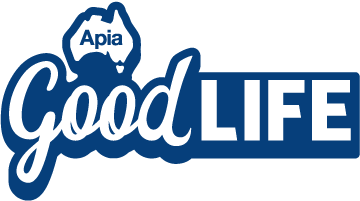Seven hidden health foods to include in your diet
When someone says ‘superfood’, what thoughts come to mind? Perhaps a handful of bright red goji berries or a container of activated almonds? How about a musty health food store or the jingle as your wallet opens to spend the big bucks?
Despite what the media or clever product marketing might have you believe, so called ‘superfoods’ aren’t a silver bullet to good health. While some may be grown in exotic lands or date back to Roman times, they’re essentially just foods high in a particular nutrient. While they are good for you, nine times out of ten you can get similar benefits from common supermarket foods at a more wallet-friendly price.
We’ve rounded up the most potent and budget-friendly hidden health foods that you can easily include in your diet today:
Avocados
First up, the humble avocado. Despite their temperamental ripening time, avos are awarded the ‘superfood’ tick because they are high in oleic acid, which helps guard against breast and oral cancers, and maintain eyesight. The fruit (often mistaken for a vegetable) is also brimming with heart-healthy nutrients such as Vitamin E, folate and potassium. That said, they’re also high in (albeit healthy) fat – and so, calories. So go steady.
Bananas
Bananas are a high-energy snack that won’t cost you an arm and a leg – provided a repeat of Queensland’s crop shortage isn’t on the cards. Bananas are particularly rich in potassium, which neutralises sodium that can be responsible for calcium loss. The result? Stronger bones.
Eating a banana a day (four to six per week to be exact) could even help keep kidney disease away. Women who ate bananas regularly were 50 per cent less likely to suffer kidney disease than those who avoided bananas, according to one Swedish study.
Cauliflower
Cauliflower actually contains more Vitamin C than kale – at a much lower price – and is high in thiamine, riboflavin, magnesium and Vitamin B6. It’s also very low in calories – which means you can have more of it at dinnertime! Wash, grate, then pan fry for a few minutes to create the perfect rice substitute.
Eggs
Eggs have got a bad rap over the years, but recent research has put them back on the menu with a vengeance. While eggs are high in dietary cholesterol (200mg), they are low in the saturated fat that increases harmful blood cholesterol linked to stroke and heart attack.
Eggs are also an excellent source of ‘complete protein’, which helps preserve muscles and aids overall wellbeing. Complete proteins contain the nine essential amino acids that can’t be produced by the body, and so need to be taken in through your diet. Still relatively high in fat, stick to one to two boiled or poached eggs per day.
Lentils
Great for soups in winter or sprinkled on salads come summer, lentils are nutrient-dense and super cheap. An 80-cent can from the supermarket will provide a heavy dose of folate and iron, as well as 8g of fibre per 100g (nearly four times that of ‘superfood’ quinoa) to help keep you regular.
Salmon (or other fatty fish)
Slightly more expensive then some of the other health foods on our list but well worth the spend. Salmon is rich in Omega-3 fatty acids (approximately 2.8g per 100g of fish), particularly important for brain health, and the prevention of diseases such as heart disease and dementia. It’s also a good source of protein, and high in vitamins and minerals including B-vitamins. Try and eat two wild (rather than farmed) salmon fillets per week to receive the full range of health benefits.
Spinach
Spinach is the ignored middle sibling to kale – yet just as potent. It’s full of flavonoids (the group of antioxidants that help protect your body from a range of chronic diseases), along with loads of magnesium/manganese to aid sleep and recovery. Plus, it can be bought frozen for next to nothing.
Being healthy, fit and well doesn’t have to involve a mission to the health food store, or cost you an arm and a leg. It simply requires smart shopping and loading your plate up with tasty protein and vegetables come dinnertime. Bon appetit!
Not an Apia customer and want to find out more?
Subscribe to our FREE Apia Good Life quarterly newsletter for information on our latest offers, stories and inspiration to keep living life at its best.
Australian Pensioners Insurance Agency Pty Limited ABN 14 099 650 996 is an authorised representative of AAI Limited ABN 48 005 297 807, the product issuer. Limits, exclusions and conditions apply. Read the Product Disclosure Statement before buying this insurance. Go to apia.com.au for a copy. The Target Market Determination is also available. This advice has been prepared without taking into account your particular objectives, financial situations or needs, so you should consider whether it is appropriate for you before acting on it.
This material has been prepared for informational purposes only and is not intended to provide, and should not be relied on as, a substitute for health and medical advice from a qualified health professional. You should seek the advice of a qualified health professional regarding your health and/or a medical condition.
The information is intended to be of general nature only. Subject to any rights you may have under any law, we do not accept any legal responsibility for any loss or damage, including loss of business or profits or any other indirect loss, incurred as a result of reliance upon the information. Please make your own enquiries.
Topics
